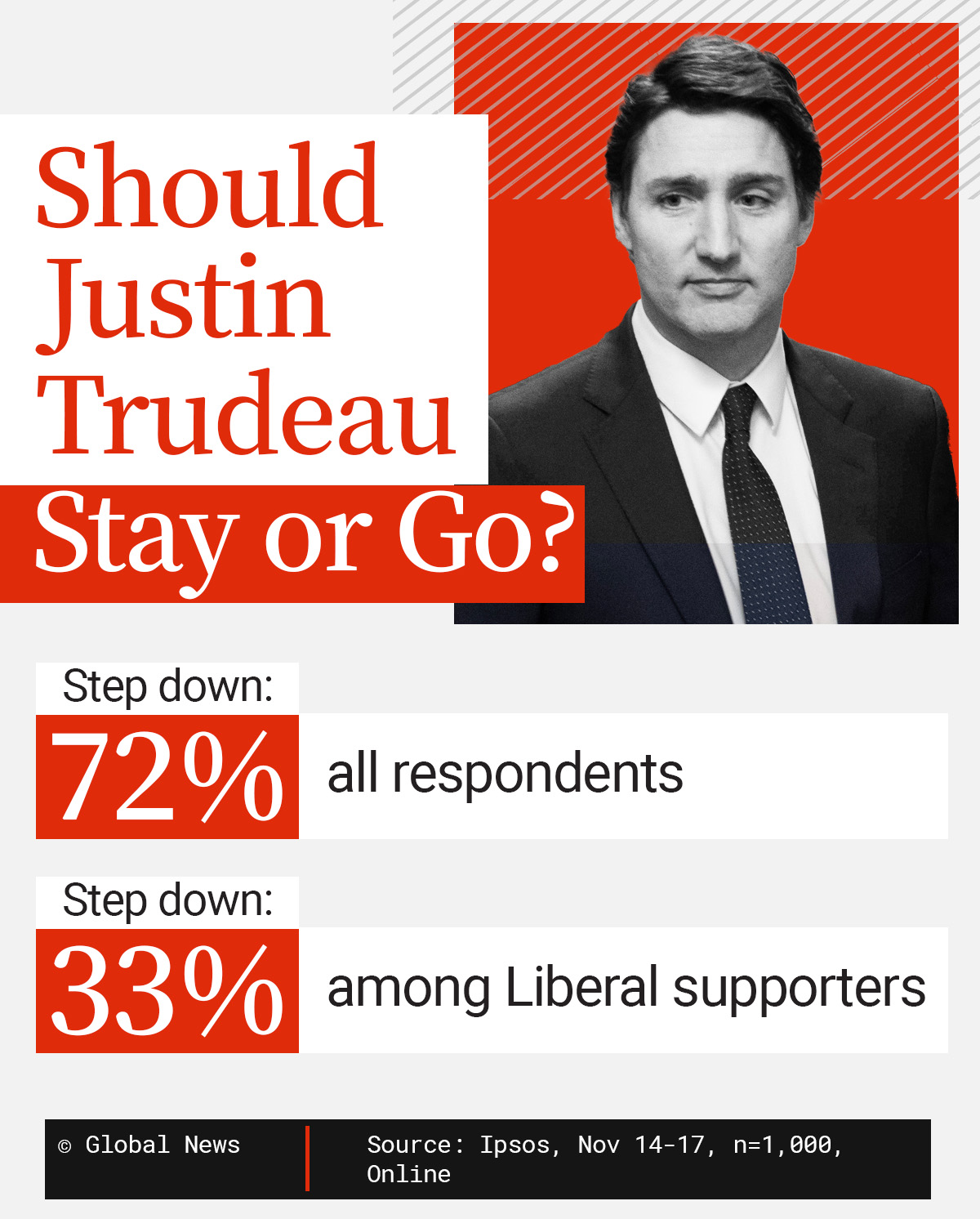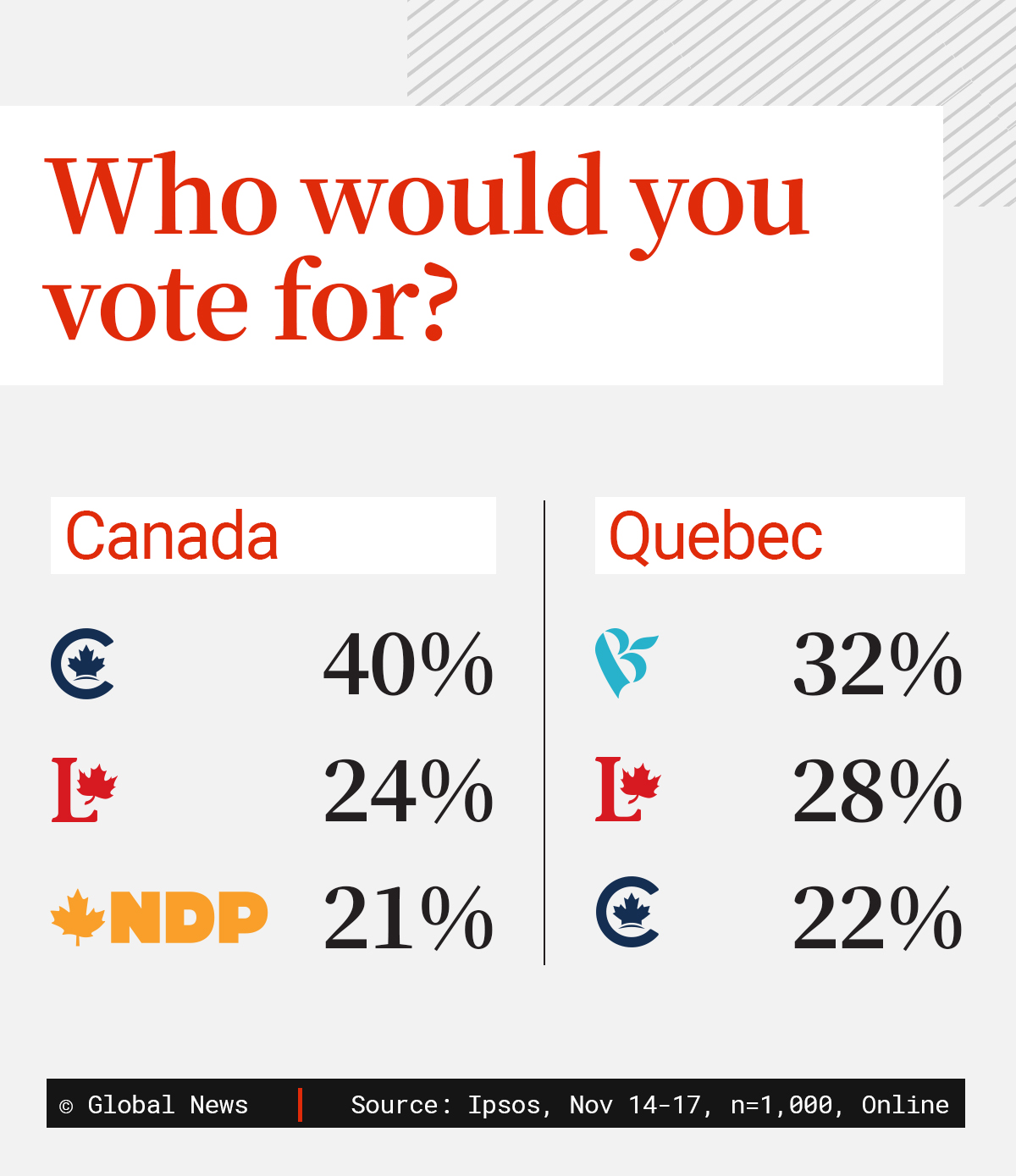Poll says three in four want Trudeau to go,
but Trudeau insists he’ll stay
On Feb. 28, 1984, Pierre Trudeau went for his famous walk in the snow where he made a decision about his political future.

The next day — a leap year Feb. 29 — his boys, including a future prime minister, tumbled into his bedroom to say goodbye to dad before heading to school. It was then that Pierre told them, “Boys, it’s time to go.” The elder Trudeau announced his resignation that day, clearing the way for a decade of rule by Brian Mulroney’s Progressive Conservatives.
But if anyone thinks Pierre’s son is going to clear the way for Pierre Poilievre’s Conservatives by taking his own walk in the snow this February and declaring to his children that it’s “time to go”, they may be disappointed.
Justin Trudeau has told his closest advisers he would not be true to himself if he quit as Liberal leader and prime minister; that he’s looking forward to fighting an election against Conservative Leader Pierre Poilievre; and that he believes that with two years until the next election — assuming the Liberal-NDP supply-and-confidence agreement holds — he and his party have enough runway to turn around poll numbers and win a fourth consecutive general election, a feat accomplished only by John A. Macdonald and Wilfrid Laurier.
What's the big deal about being true to himself when he has been less than truthful to 38 million Canadians for the past 9 years?
But neither Macdonald nor Laurier ever faced an electorate that was so down on the prime minister the way it is on Trudeau.
New polling by Ipsos, provided exclusively to Global News, shows that nearly three in four Canadians believe Trudeau should step down now. Among those who identify as Liberal Party supporters, one in three think it’s time for a new party leader.
“I’ve never seen a number that high for a prime minister, probably since Brian Mulroney back in 1991, 1992. And that’s what this really reminds me of,” said Ipsos CEO Darrell Bricker.
“They created the party of Justin Trudeau and they’re going to live or die by that. They certainly have lived reasonably well over the space of the last eight years. But the other outcome is the one in which they’re defeated because they are the party of Justin Trudeau. And that’s where they are today.”
As goes Trudeau’s popularity, so goes the party’s.
Ipsos found that, if an election were held today, 40 per cent would vote Conservative, 24 per cent would vote Liberal and 21 per cent would vote NDP.
“If the NDP passes the Liberals in terms of second choice, I know what Jack Layton would do if he was the leader of the party,” Bricker said.
“He certainly wouldn’t support the government and they would go for it because they see themselves as the progressive replacement, the other option on the agenda on the ballot for Canadians who have a progressive point of view, but this NDP has not shown that level of moxie.”
Or, perhaps, any level of moxie. How can they prop up this seriously-unwanted government and still be taken seriously by the electorate?
While Jagmeet Singh’s NDP have been critical of Trudeau’s Liberals, they have not given any serious indication that they would unilaterally break the supply-and-confidence deal — a deal in which the minority Liberal government is guaranteed support on matters of confidence by the NDP in exchange for showing progress on a series of issues the NDP believe should be federal priorities, such as national pharmacare, universal dental care and housing.
The Liberals are not only in danger of slipping into third spot nationally, but they have also dropped to second spot in Quebec where the Bloc Quebecois is the choice of 32 per cent of those Ipsos surveyed in that province. The Liberals there are the pick of 28 per cent and the Conservatives the choice of 22 per cent.
Ipsos surveyed 1,000 Canadians using its online panel from Nov. 14 to 17. And while a margin of error cannot be calculated from online panels, the pollster says it can measure the reliability of its polls using a statistical method known as a credibility interval. Using that method, the pollster says its work is reliable to within 3.8 percentage points, 19 times out of 20.
Bricker says the 16-point Conservative lead is not so much the result of any particular ardour voters have for Poilievre or the Conservatives as much as it is complete weariness with the Trudeau government and the Trudeau government’s inability to be seen as managing the issues Canadians care about the most: inflation, health care and housing.
When Ipsos asked respondents which party they thought would be best to tackle inflation, fix the housing crisis, manage the economy, and keep taxes down, most respondents picked the Conservatives. On health care, poverty and social inequality, the NDP was the top pick, and on climate change, the Green Party came out on top.
The Liberal Party was not seen on any single issue as the best to manage it.
And yet Trudeau himself believes another election win is possible. With Sean Fraser as his new point person on housing, the government is trying to convince Canadians it is making meaningful changes to housing affordability and supply. That might help boost Liberal numbers. Meanwhile, for the first time since Trudeau became leader of his party a decade ago, the party is running paid negative advertising attacking Poilievre hoping to drive down Conservative numbers.
American style campaigning!
Looking at the current polling data, Bricker believes Trudeau’s optimism and faith is “a very brave take on the current situation.”
Bricker says the best hope for the Liberals, given the desire for change among three-quarters of the electorate, is for a major external shock — a Trump re-election perhaps — or a series of major blunders by the Poilievre Conservatives.
“It would be absolutely unique for somebody to pull it out of the fire in the situation that he’s in,” Bricker said.
“I mean, even his own party supporters, a significant number of them don’t want him to run again. There’s nothing there. There’s no silver lining that anybody can really grab on that suggests that there’s any pathway through to improving these situations.”
David Akin is the chief political correspondent for Global News.
Canada’s homicide rate is at the highest level in 30 years
Canada’s homicide rate is at the highest level in 30 years, as police-reported crime continues to rise in the country, data shows.

For the fourth year in a row, the national homicide rate went up in 2022, according to Statistics Canada data released Wednesday.
The homicide rate, which is considered a key indicator of the state of violence in society, increased by nearly eight percent to 2.25 homicides per 100,000 population.
This was the highest homicide rate since 1992, according to the agency.
Across Canada, a total of 874 people were killed in 2022, which was an almost nine per cent increase compared to the previous year.
“Despite recent increases, homicides remain a rare event in Canada, accounting for less than 0.2 per cent of all police-reported violent crimes in 2022,” StatCan said in its report.
Among the provinces, Manitoba had the highest homicide rate last year, followed by Saskatchewan and British Columbia. Prince Edward Island and Newfoundland and Labrador had the lowest.
Most Canadians feel violence has risen in their community during the COVID-19 pandemic, polling shows.
An Ipsos poll conducted exclusively for Global News in February suggested 58 per cent of Canadians believe there has been more violence in their community since the pandemic began in March 2020. And the data mirrors those sentiments.
StatCan had included homicide data for 2022 in its police-reported crime report earlier in July, but it published more trends related to homicide Wednesday, including on police deaths and youth suspects.
Five police officers were killed in the country last year “because of their occupation”, which was the highest number in 37 years for Canada.
There was also a big jump in the number of Canadian youth accused of homicide, with police reporting 90 youths accused in 2022, compared with 33 the year before.
The rate of youths accused of homicide more than doubled last year – reaching 1.23 per 100,000 youths – compared to the previous 10-year average.
StatCan said this increase can be largely attributed to a rise in the number of homicide incidents involving multiple accused individuals aged younger than 18 years.
Meanwhile, Indigenous and racialized people continue to be disproportionately affected by homicide, StatCan data shows.
Indigenous people represented more than a quarter (27 per cent) of total homicide victims, while one-third (30 per cent) of the victims were identified as being racialized people.
Firearms-related homicides accounted for 41 per cent of Canada’s homicides in 2022, similar to 2021 levels.
Gang-related homicides accounted for nearly a quarter of homicides 2022, “a large contributor to the overall national homicide increase” compared to 2021, the report notes.
74th Ontario City Declares Intimate Partner Violence an Epidemic - The Canadian Paradox?
============================================================================================











